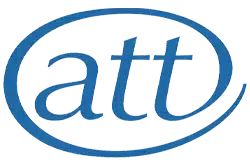In Philip Hammond’s first Autumn Budget, there were a few tweaks to capital allowances, as noted below.
Of more interest may be the removal of CGT indexation for companies and for non-resident landlords, the move into the corporation tax regime.
Enhanced Capital Allowances (ECA)
- The list of designated energy-saving technologies qualifying for an ECA, will be updated in December 2017.
- The list will updated to introduce evaporative air coolers, saturated steam to electricity conversions and white LED lighting modules for backlit illuminated signs.
- Two categories will be removed: localised rapid steam generators and biomass fired warm air heaters.
- The qualifying criteria for 9 current technologies will be modified.
- As a reminder, ECA provide a 100% first year allowance and are available to all tax payers.
First Year Credits
- For loss making companies (so not individuals, partnerships, non-residents etc), a credit is also available in lieu of claiming ECA.
- This is currently 19%, but will fall to two thirds of the current CT rate of 19% from 1 April 2018.
- Assuming this is rounded upwards as is the current rate, this will mean a new credit rate of 13%.
- This will fall again when CT rates are due to fall to 17% in 2020.
- The change to the credit is predicted to have an negligible impact on the Exchequer, showing how little companies actually benefit from this credit.
Gas Refuelling Equipment and Low Emission Goods Vehicles
These benefit from a 100% first year allowance and this will be extended from April 2018 for a further 3 years.
Annual Investment Allowance (AIA)
The 100% AIA remains at £200,000. Other potentially relevant points for property owning companies:
Corporate Indexation Allowance (CII)
- In relation to chargeable gains made by companies, CII will be frozen from 1 January 2018.
- Therefore, no relief will be available for inflation accruing after this date.
- This brings the corporate regime in line with income tax.
Non Resident Companies
Following consultation, from April 2020 income that non-resident companies receive from UK property will be chargeable to Corporation Tax, rather than income tax.
In addition, gains on non-resident disposals of UK immovable property accrued on or after April 2019 will be brought within the scope of UK tax.
Re-basing will apply so that the gain before this date is not taxed.
Contact Us
If you have any questions about the Budget changes or any other aspect of capital allowances, please contact one of the Yewell Consulting partners.






